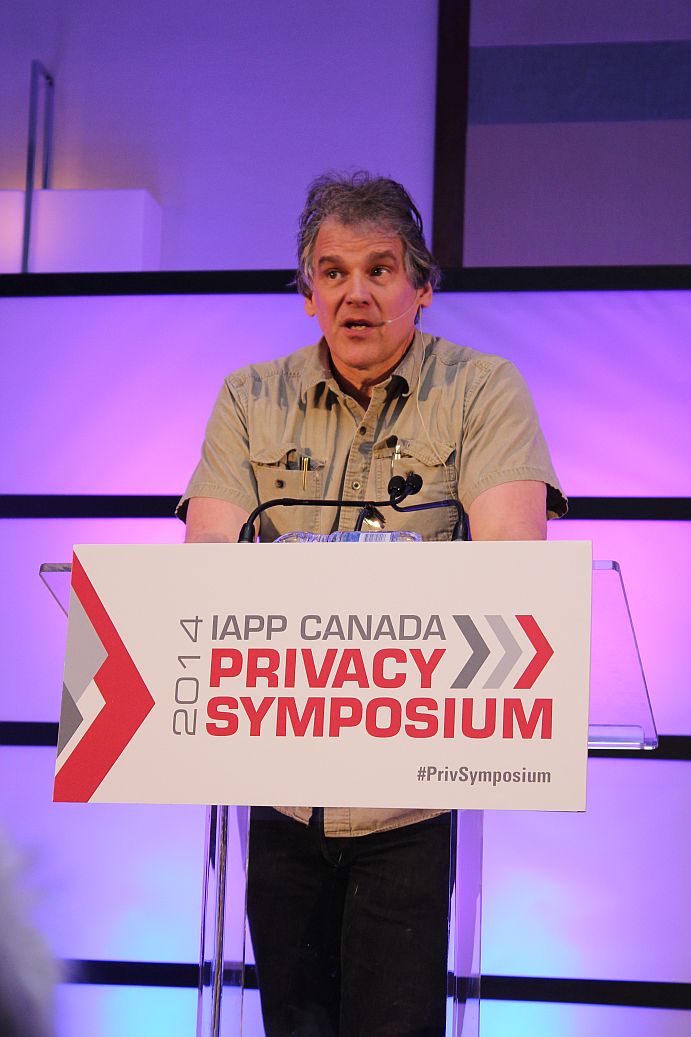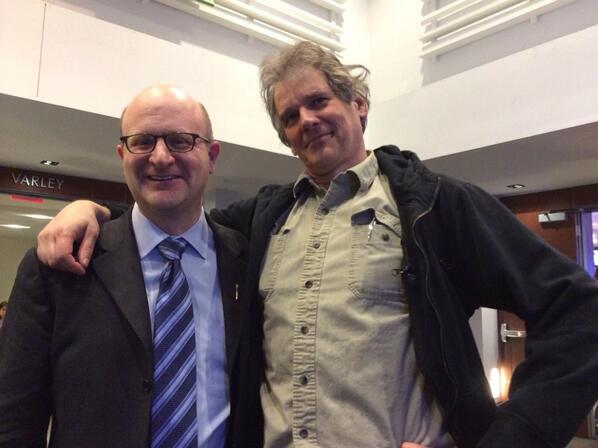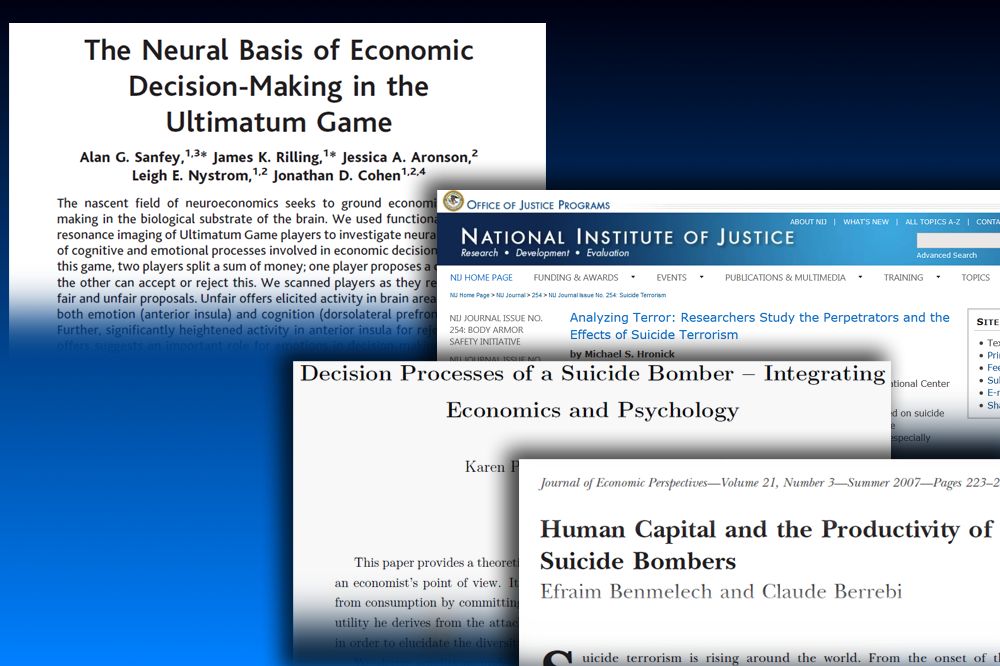A Suicide Bomber’s Guide to Online Privacy
You know this place. It’s cozy, it’s out of the way. It’s one of the Internet’s innumerable back alleys, known to but a few except for those brief spikes when I get arrested or nearly die of some exotic disease. So when I go off on one of my rants— say, about Obama’s surveillance state and David Brin’s surprising take on primate ethology— I don’t expect any ripples to extend beyond the local neighborhood. What happens on the ‘crawl stays on the ‘crawl.
 I’m still not quite clear how the organizers of the International Association of Privacy Professionals stumbled across our secret meeting place; but back in March one of them contacted me with an invitation to act as a keynote speaker for their annual Canadian conference. Apparently David Brin had just served in that role during their DC summit; they’d read my recent rejoinder to his model of the Transparent Society, and wondered if I might like equal time.
I’m still not quite clear how the organizers of the International Association of Privacy Professionals stumbled across our secret meeting place; but back in March one of them contacted me with an invitation to act as a keynote speaker for their annual Canadian conference. Apparently David Brin had just served in that role during their DC summit; they’d read my recent rejoinder to his model of the Transparent Society, and wondered if I might like equal time.
My immediate reaction was that this had to be some kind of cruel hoax. But they hooked me anyway, with what basically came down to a double-dare: “You’ve got a chance to talk to the regulators who enforce privacy law and the executives as big companies who make decisions about what to do with your data – what do you want to say to them?”
Well. Since you ask.
Which is how I found myself talking to a room full of lawyers and politicians last Friday, lecturing them about the origin of the religious impulse and the evolutionary roots of revenge. The title of the talk was “The Scorched-Earth Society: A Suicide Bomber’s Guide to Online Privacy”, and it’s safe to say the audience found it— well, “jarring” was the word chosen by the court reporter that day[1].
This was not my usual audience.
For one thing, they weren’t used to thinking of humans as mammals, or that certain types of stalking behavior make us feel treated not just like criminals (as the common refrain would have it), but like prey. The connection between pareidolia and the religious impulse seemed new to most of them, too. Most of all, I don’t think anyone was expecting a biologist with absolutely no legal knowledge[2] to brazenly advocate a middle-finger strategy against government demands for metadata— to suggest that destroying one’s data outright might be preferable to handing it over when the spooks came calling. Possibly because the audience contained so many people from the government.
And yet, all things considered, it went over way better than any sane person might have predicted.
That wasn’t apparent in the moment, mind you. For one thing, I was on immediately after the IAPP presented an award to Ann Cavoukian (Canada’s departing privacy commissioner, and a constant thorn in the side of the Harper administration); this was a tough and high-profile act to follow. For another, certain examples I cited during my talk turned out to revolve around folks who were present in the room (including Chantal Bernier, our interim privacy commissioner and another of the keynote speakers). There’s something unnerving about presenting a newspaper headline about some late-breaking controversy, only to realize midsentence that the person who broke it is watching stone-faced from the second row.
Lots of stony faces, at first. I thought my close-up gorilla face slide would get a chuckle (well, in conjunction with the commentary); you could’ve heard a Euglena flagellating. I got an unexpected titter when I used the word “chickenshit” during a reading from Echopraxia (no, I wasn’t pimping; I was bringing the audience up to speed on a bit of evolutionary biology). And I managed to provoke actual laughter when I admitted preemptively that “Just to be clear, I don’t expect any of you to embrace this”, after introducing the punchline. Which I read as Of course we’re not going to embrace it: it’s fucking idiotic.
And yet, at the very least, I seemed to have their attention.
I slunk from the stage with my last slide still glowing on the screens. There was applause. I sat down at my table and picked disconsolately at a chicken bone. Someone told me I’d had the room “riveted”. I expressed skepticism, citing a certain perceived humorlessness on the part of the audience. “They’re a bunch of lawyers,” I was told. “It’s amazing when they laugh at anything.”
And then something weird happened. People started dropping by the table. Lawyers and corpses came by to say they’d never thought about surveillance in quite that way before. Someone up from Silicon Valley asked if I’d ever given a TED Talk. (I know, I know. But I’m pretty sure she meant it as a compliment.) Ann Cavoukian herself brought her regards; we ended up talking about behavioral hardwiring for about ten minutes. She seemed so favorably-disposed to my thesis that I asked if I could quote her as being in favor of burning your own data when Big Brother came calling, the law be damned; she counter-offered that I could quote her as favoring “secure data destruction”. Even after the Squid had Left the Building, I ended up chatting about privacy legislation with a civil servant for three blocks along University Avenue. (Turns out that here in Ontario, there are all sorts of laws against government surveillance of employees, but none against corporate surveillance. Who knew.)
Perhaps most amazingly, at least one person in the audience actually knew who I was before I started speaking. An actual fan, as it were— someone who needed photographic proof of our encounter that he could present to disbelieving friends back home who were, he said “even bigger fans”. That was not the amazing part, though. The amazing part was that this guy— Don Scott by name— is a member of the Alberta Legislature. A Conservative. And his riding encompasses the Alberta tar sands.
I find it astonishing— and not a little disquieting— that anyone from that end of the spectrum, representing those kinds of interests, could possibly be a fan. I mean, that would imply that he was familiar with my work, right? And anyone who’s read my work must be aware of my bitter environmentalist leanings, right?
Then again, who would’ve expected a roomful of lawyers, executives, and politicians to respond favorably to a midlist science-fiction writer wittering on about pareidolia and sticking it to The Man?
Something’s not adding up here.
Maybe it was all just a cruel hoax after all. Or maybe it was an inroad. My personal Venn Diagram has never overlapped with this particular community before; and they seemed to regard my evolutionary handwaving as a refreshing change from the usual business speak. Apparently I made an impression. Maybe someone, somewhere, someday will invite me back.
I wouldn’t turn them down.
Postscript 23/05/2014: In the days since I first wrote this, Bruce Schneier boosted the signal based on Angelique Carson’s report— and while I’m massively chuffed that he likes my ideas as reported, some of that reportage was a bit off-base in significant ways. Given that those inaccuracies tend to get boosted along with everything else, I’ve made a brief follow-up post to address the more glaring glitches as kind of a holding action until I get around to posting the actual transcript. It’s over here.
[1] Incidentally, those who follow that last link should take some of the quotes attributed to me with a grain of salt. Either the author of the article was way at the back of the room, or I wasn’t enunciating very clearly.
[2] Well, except for a couple of Michigan statutes with which I grew intimately familiar a while back.
















I’ve read that many Conservatives recognize those sorts of environmental problems and accept them as existing, they just feel that it’s not in their own personal best interest to do anything about it. To me that’s hypocritical. And I’m not a big fan of hypocrites.
If you ever write up all your thoughts on pareidolia and the religious impulse etc. I’d use it in my intro to religious studies class. Oughta be worth a laugh or two here in the Deep South of the USA.
There are plenty of writers with definite conservative leanings whose works I admire, and reccomend, on aesthetic grounds, though I might disagree with many of the political points (consciously or not) the text is making/trying to make.
//JJ
Any chance we’ll get to read a transcript of your talk? Or is it mostly the same as your Brin rejoinder?
Ditto as Johan: I, too, began reading a lot of (very) right-leaning SF. The trick in any story telling is to manage sympathy for the characters, and those authors (among them David Weber) did.
Sometimes the political blind spot is not even discernable. But when, in a best-seller, you come across “she was a wide-eyed-liberal” or some similar stamp phrases, you feel a sudden urge to explore other parts of the political spectrum.
I think what you share with some conservatives is the recognition that the world is getting far worse, and the pace of technological advancement is not keeping up (holding back?) with a morality that’s reflective, reflexive (as in, one works upon one’s self), and cautious of unrestrained optimism. But they don’t have the sense of joy you do in the blurring of one type of machine with another (for example, blending the human machine with the other kinds of machines: animal, social, digital, fabrication, &c. And any other combinations, too).
Maybe I’m entirely wrong about this, but it does seem to me that whereas a great many people, whether conservative or progressive, thinking skyward or earthward, advocating more market solutions or fewer, think that the projections we make are inevitable, the tension I saw in the Rifters trilogy is resisting one’s machine and choosing as an act of will a different way. The tension is further amplified by this act of will itself being the product of further machines. It’s a dialectical process of “Fuck me? No, fuck you!” to “We are fucked” to “Can’t we just not fuck at all?” Blindsight has this tension in a different way, and I do not want to spoil any of it, but it sets up this problem—so I read it—more broadly than just the acts of will of humans in two significant ways, one obvious and the other the surprising twist towards the end. It seems to me a logical progression of the tension of what to do with the will, particularly a will as an impulse, in the physics sense, of the machine’s trajectory.
If this theme is there, then it does coincide with a number of conservative positions regarding what to think about humans, the world, politics, systems. How does a sinner with a sinful nature choose to embrace God, once we claim that sinful natures are incapable of changing? How does a citizen stop the inexorable march of Big Government and rampant bureaucracy if the citizen doesn’t even know what form to complain with? How does one appreciate tradition and culture when the society descends into celebrations more narcissistic, self-inventive, and conventionally transgressive? When the world appears more and more to be on a course less and less the proper (or natural, or healthy, or …) one, the conservative looks to its relation with some hierarchical framework to reassure it of a place, in some sense, already prepared for it (heaven, communes, flea or junk markets operating outside regulation, wildlife management areas).
If this theme isn’t there, then chalk it up to my own philosophical preoccupations. : /
*drools in anticipation of seeing the slide deck / reading the transcript*
Also, although I am not a Dave Eggers fan, my father gave me a copy of The Circle for winter gift giving, and there’s a scene near the end with a predator and some prey in a tank which is used as a last very simple argument for the value of privacy.
And I can totally see certain flavors of conservative being dubious about religion and surveillance both. Libertarians. Doesn’t make me like ’em, just means it takes me longer to get a radar lock on ’em.
S Michaud: you gave me a giggle today. ( : Thank you.
I’ve got to second others here: any chance there is a transcript or video of your talk?
Re the issue of a fan that seems to be a polar opposite on a fundamental issue … In one way or other, I really liked all I read from you (Peter), but I strongly disagree with biological determinism I see in a lot of your stories. Not wanting to sound mean, but that someone deeply conservative rather likes this … why not?
Ultimately the political right is arguing that the social hirarchies and inequalities that exist do so because it’s gods will, or fate, or biologically determined (poor gene stock in the underclass). Nothing to do with the specific way we allocate resources, no way. And of course history is that thing that ended in the early 90ties so there’s no point in asking big questions about the how and why of our society.
So yeah, I can see a conservative enjoying your stories. Or maybe your conservative fan is not reading half as much into the things you write as I do and simply enjoys the stories, after all you write pretty well and at times pretty thinky stuff.
Thirded. Transcript required. Slides desirable. Video appreciated.
Fourthed. Awaiting all of the above with baited breath.
Mr Watts likely has quite a few avid fans on the inside of the NSA Black Cube. The connection between the intelligence community and sf goes back a long way e.g. Paul Linebarger and Alice Sheldon. Bruce Sterling trod a similar path in the wake of Operation Sundevil, 24 years ago this month.
I am glad to see you branch out and share the fruit of your perfervid imaginings with more of your fellow conspecifics, Mr W. N-ded on the chance to see the slides.
It makes me wonder if you are ever going to do a UK appearance. I know you did somewhere else in what you call ‘Europe,’ bless you North Americans, but that isn’t the same. I don’t know how these things work but surely there are things like this that would have budget for you, I dunno?
http://www.britishscienceassociation.org/british-science-festival
There is also the Loncon thing?
Is the UK on an ‘Echopraxia’ book PR tour?
Happy to buy you multiple beers.
I like the part about surveillance being inherently uncanny to intelligent animals, but the killswitch idea has two flaws I can see:
1) A lot of vital data is stored by other parties than the user’s;
2) It requires awareness of the user’s part that they are being observed.
This really made me smile. If I had known I would have flown up there, put on a lawyer disguise and tried to scalp a ticket. I can only imagine how awesome a scene it must have been. Go Peter!!!
A. Bevans et al:
A good chunk of the talk will already be familiar to regular ‘crawlers; I took bits and pieces of previous lectures, and previous blog posts, and repurposed them for the new focus. That said, there is some new material in there. I could always splice my notes and my recollections into something resembling a transcript, and post that somewhere down the line.
As for video, if anyone recorded the proceedings, they didn’t tell me. CSIS probably already has it archived.
Yeah, well as I recall I have to go back and look over some nineties-era issues of Science for you beforehand. I’ll try to get to that this weekend.
I have no idea what anyone’s planning for Echopraxia in the UK. I do know it’s being released initially in an omnibus edition with Blindsight, which I looked seriously askance at until they assured me it would also be released as a standalone further down the road. But tours? Love to, although I don’t think it’s terribly likely.
As for Loncon, well, I’ll be there the day before, and I’ll be back for a few days the day after; my actual time during Loncon, though, I’ll be serving as GoH at a different con in St. Petersburg, probably because everyone else who would have been more qualified will be in London then. I’ll miss Worldcon, but my expenses will be covered which is a pretty powerful inducement for any midlister.
Caitlin will be there, though. And I’ll be meeting up with her after Loncon to tool around the English countryside for a few days, since the only other time I’ve been to the UK was with my family, and was an epic misadventure involving ghosts, psychotic boyfriends, missed flights, Oedipal conflicts, released flatulent French asylum inmates who screamed in their sleep, a musical in an old-folks home, survival-foraging for a day and a half at Heathrow international airport, wiped computer disks, vomit, and a New Year’s Eve party with a bunch of Rugby players in Glasgow (which was the clear highlight of the trip).
Huh. Maybe that would make a decent blog post on a slow day…
Granted on both points. Still, you don’t want to make the perfect the enemy of the good, or even (in this case), the slightly-better-than-things-are-now. End-to-end encryption would help get around Point #2, insofar as if such encryption were really solid, the spooks would have to show up and demand that you either weaken it or build them a back door. I’d consider that a flag.
If gummint and lawyers are the same in Ontario as in DC, a businessman’s light blue collared shirt with tie would have magically made you 14% funnier and more credible. *shrugs* Yeah, I know, makes no sense.
This:
Someone up from Silicon Valley asked if I’d ever given a TED Talk. (I know, I know. But I’m pretty sure she meant it as a compliment.)
XD Lol! TED talks, haha.
The whole thing sounds like a triumph – a scary thing that looked like it might being going horribly wrong, but you pulled it out of the fire – what a rush. I got vicarious rushness from the description.
“Something’s not adding up here.”
Maybe many of our leaders are more sheeple than we are used to considering?
Kudos on pointing out treating people like criminals/prey does not invoke warm feelings. I’m actually not surprised that you have conservative fans. There are people like Paul Craig Roberts, Mike Lofgren, and Roy McGovern who are up in arms over much of this stuff and those of us watching closely and refusing the Blue Kool-Aid note that playing to the Oligarchy is more mercenary than party-affiliated. We’re down to human problem, folks, not partisan pro-wrestling rah-rah nonsense.
… a New Year’s Eve party with a bunch of Rugby players in Glasgow…
And that was you enjoying yourself? Christ, you’re hard, man. Hard.
Damn, would love to have been there. I too would love to read the transcript.
“They’re a bunch of lawyers,” I was told. “It’s amazing when they laugh at anything.”
This statement makes me very happy. I am a lawyer and I laugh at just about anything.
I would haved loved to have been there. Transcripts would help the feeling of loss.
My first thought on seeing that photo was: “Nice nerd-pack!”
Off topic question for Mr. Watts or anyone wants to answer.
Noticed that you have made grittier/hard scifi version of vampires, so was wondering. If you were asked to write a game or book based on the Bourne stuff, what actual method would you come up with work to keep an operative on a short leash. Given the Snowden situation, I can imagine something making them, well in a future or more secretive way, drop dead if they get too far or are away too long. A drug? An implant by the heart? Obviously would have to be safeguarded against accidental release or enemy hacking and as last resort after Indoctrination and other methods like loyalty conditioning.
Thanks for the replies in advance.
Jeff
Peter Watts,
An omnibus? It shows up as an ebook on its own on Amazon in the US. I suppose if there was a combo ebook I’d get it anyway for the new novel.
I just read Caitlin’s most recent book and it was over too fast. Now I wait for the sequels.
Peter,
who is your British publisher? Is there any chance you could get them to re-issue Behemoth (because that is ridiculously hard to get a hold of)?
Pirmin,
Hi Pirmin, are you familiar with the backlist section of his site? It won’t help if you need a physical book, but helps if you want to be able to read an ebook version.
http://www.rifters.com/real/Behemoth.htm
Hey Peter, while I am leaving a comment I have another question — I just noticed a news item about octopus arms not sticking to octopus skin perhaps due to a repellent in the skin. This is great for not getting tangled up in oneself, but maybe not so great if you want to eat other octopuses. Do octopuses in fact prey on other octopuses? and if they do, do they have a very tricky time trying to grab on?
I bet those guys would be the scary smart octopuses. like the Salticidae are the bad-ass scary smart spiders since they eat other spiders.
Sheila,
I am in fact looking for a hard copy – I simply prefer to have good books standing on my shelf. 🙂
For some reason, it’s no problem to get a translation, but the original is a rarety.
There’s always Shamrokon (this year’s Eurocon, just after Loncon): smaller city, friendly people, fresh Guinness. Just sayin’.
Hello, Mr. Watts. It’s a little bit off topic, but I think you might find that curious as the publication below overlaps with your both your interests described in Blindsight novel and biology scientific areas.
http://journal.frontiersin.org/Journal/10.3389/fnbeh.2014.00152/abstract
So yeah, read the suicide bomber piece, and my response is, well, and sure, that’s giving up. Let’s just seppuku the data. Yep. That’ll do it. Except for data in the hands of others…or that there are several solutions already in place…from darknet, to hacking, and so much more. I personally strongly suspect and have seen at least anecdotal evidence of amazing cleverness and intelligence amongst people. Really. To burn the data is to capitulate. Anything the surveillance goons can do, we can counter. And as a biologist, you obviously know ofsuch things as camoflauge behaviour, and such things. I prefer to consider things on a morepositive note – that what they are doing is creating an environmental pressure, and some of us respond, some don’t. We adapt, we survive, and sometimes we even win. That’s the name of the game, man.
You were highlighted by Schneier on his blog Mr. Watts:
https://www.schneier.com/blog/archives/2014/05/alan_watts_on_t.html
Don’t know why he called you Alan…
Small correction: Ann Cavoukian is the departing Privacy Commissioner of Ontario; Jennifer Stoddard is the departed Privacy Commissioner of Canada. Stoddard will be succeeded by Daniel Therrien. Therrien was nominated by Stephen Harper, and is currently the Assistant Deputy Attorney General, Public Safety, Defence and Immigration Portfolio, at the Department of Justice. This is the government department responsible for much of the spying on citizens in Canada today.
–Bob Jonkman